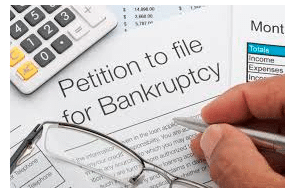Filing for bankruptcy isn’t always the end but can prove to be the beginning of a fresh start.
Piling up debts and seeking relief from them may seem challenging to many. However, choosing the right relief strategy can make a critical difference in your afterlife.
In this article, you will find some concrete information on two different types of bankruptcy.
Scroll down and find out which one is more suitable for your case.
Filing For Bankruptcy
First things first, you need to understand that bankruptcy isn’t everything black and white.
There are several limitations, and depending upon the type of bankruptcy you file, the consequences would differ.
For instance, Chapter 7 and Chapter 11 are the two most common types of bankruptcies sought by businesses. Although, they are also available to individuals.
In contrast, another type of bankruptcy (Chapter 13) is typically meant for consumers only.
When filing for bankruptcy, it is crucial to understand and estimate your financial situation. After all, whether you file it for personal debts or your business, it will have an impact on your finances.
To keep the context, we will stick to only two types of bankruptcies – Chapter 7 and Chapter 11.
Chapter 7 Bankruptcy
Also known as liquidation bankruptcy, Chapter 7 is typically filed when things are beyond manageable.
Consider this: Say your company or you as an individual has piled up thousands of dollars in debt. Your current income and expenses are not enough to reorganize your debt repayments.
As a result, the courts will order to liquidate your personal or business-related assets.
But, note that it depends on what type of debts you have and the state where you live.
As an expert bankruptcy lawyer los angeles opines, the courts will also consider other liabilities before liquidating your assets.
It is noteworthy that your secured debts would be prioritized over unsecured debts. Loans or credits from banks and other financiers that have collateral attached to them are considered secured loans. For example, a mortgage or a car loan.
When liquidating your assets, the secured creditors will be pooled together. And any money that is left after paying off the secured debts would then be distributed among unsecured creditors.
Chapter 11 Bankruptcy
Well, this is certainly a more suitable option if you have enough resources to pay off your debts in an increased term.
Typically, when you file for Chapter 11 bankruptcy, the court will assign a trustee to your case. The trustee would evaluate your debts, income, and other expenses to assess whether you can repay if the term is extended.
Chapter 11 bankruptcy is also often known as reorganization or restructuring of debts.
Besides, it is also noteworthy that the creditor or the debtor can file chapter 11 bankruptcy, depending upon the situation.
The Takeaway
You can file for any type of bankruptcy; however, the decision would rest upon the courts. Meaning, whether your assets would be liquidated to pay off your debts or your loan would be restructured will depend upon the court’s decision.




